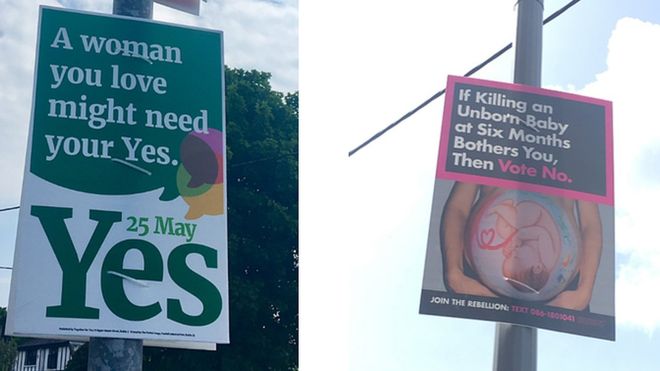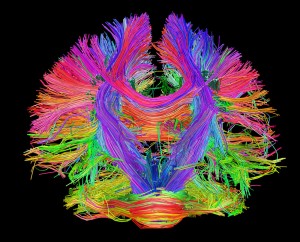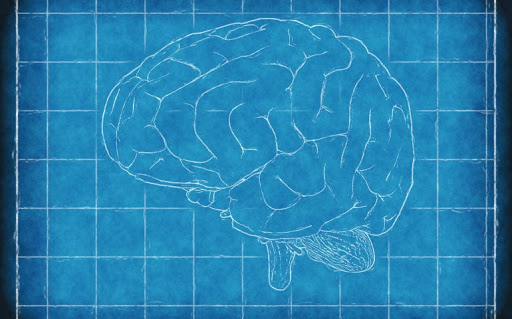Aug
26
2019
 Here’s yet another reminder that our memories are reconstructed fabrications our brains use to reinforce existing narratives. A new study of 3,140 participants finds that exposing people to fake news created false memories of the depicted events in about half of subjects.
Here’s yet another reminder that our memories are reconstructed fabrications our brains use to reinforce existing narratives. A new study of 3,140 participants finds that exposing people to fake news created false memories of the depicted events in about half of subjects.
What the researchers did specifically was show people in Ireland prior to the 2018 referendum on abortion, six news stories, two of which were fake. One of the fake stories was about campaign posters being destroyed after it was discovered that they were illegally funded by an American. Later, about half of the subjects reported false memories regarding at least one of the two fake stories. About one third of the subjects included details in their fake memories that were not included in the original stories.
Further, subjects were more likely to form false memories if the fake news dealt with a scandal for the other side (so “yes” voters were more likely to form false memories regarding a scandal involving the “no” vote). And perhaps most concerning, when the subjects were told which news stories were fake, this only decreased the false memories slightly. It did not correct the effect.
None of this is entirely new, but it is the first study like it involving a real-time political event. This research reinforces what psychologists have been demonstrating for years – that memories are constructed, and then reconstructed in remembering, that memories are partly thematic and the details will morph to fit the theme, and that fake memories are relatively easy to create. Once formed a fake memory feels just like a real memory. They are just as vivid and compelling as a genuine or more accurate memory. Vividness does not predict accuracy, despite the fact that this is what most people assume.
Continue Reading »
Jul
26
2013
I never pass up an opportunity to remind people of the weaknesses and flaws of human memory. It is perhaps the most widespread and persistent delusion that our memories are reliable sources of information.
A new study in mice attempts to create false memories of experiences the mice never had. False memories are one of the major flaws of memory. Memory is not a simple process of encoding, storage, and recall. Rather, memories are actively constructed. In this sense, all memories are “false.”
We construct and reconstruct our memories every time we recall the memory. This process is susceptible to suggestion, confabulation, fusion of details, bias and distortion.
Continue Reading »
Mar
14
2008
Scientists and skeptics are keenly aware of the nature and limitations of human memory (or at least they should be). While so-called “believers”, and the public at large, generally put unjustified faith in the accuracy of memories, especially their own. This often constitutes the gulf that separates believers and skeptics on many issues.
Many people remember being abducted by aliens or seeing ghosts. Advocates of dubious medical treatments often site stories of people who were apparently cured by the treatments. The stories often seem very compelling, the facts all line up, the conclusion seems obvious. Yet skeptics will easily shake their head and say, “I just don’t believe it.” This frustrates the believers no end. How can the skeptics dismiss what so many people have experienced, they wonder.
The reason is simple – human memory is incredibly unreliable, and most people grossly underestimate the extent to which their own memories can be altered and fabricated.
Continue Reading »
Jan
20
2015
 When a suspect confesses to a crime, that is a powerfully persuasive piece of evidence. People assume (reasonably) that no one would confess to a crime they didn’t commit, extrapolating from the conviction that they would never do so themselves.
When a suspect confesses to a crime, that is a powerfully persuasive piece of evidence. People assume (reasonably) that no one would confess to a crime they didn’t commit, extrapolating from the conviction that they would never do so themselves.
Of course there are legal reasons why someone accused of a crime would confess to guilt, in order to plea to a lesser charge or sentence and avoid the risk of a much more serious sentence. It is an unfortunate reality that innocent people can be wrongly convicted, and therefore an innocent person might confess in order to avoid the worst consequences of such a wrongful conviction.
Would, however, someone confess not to secure a plea bargain but simply because they are being aggressively interrogated? New research suggests that it is possible to form false memories of having committed crimes that one never committed. This is not surprising given all the previous memory research showing how easy it is to form false memories.
Continue Reading »
Dec
16
2014
 It has been six years since I have written a blog post deconstructing the nonsense of our favorite creationist neurosurgeon, Michael Egnor. In case you have forgotten, he is a dualist writing for the intelligent design propaganda blog, Evolution News and Views. He delights in ridiculing what he calls “materialist metaphysics,” or what scientists call, “science.”
It has been six years since I have written a blog post deconstructing the nonsense of our favorite creationist neurosurgeon, Michael Egnor. In case you have forgotten, he is a dualist writing for the intelligent design propaganda blog, Evolution News and Views. He delights in ridiculing what he calls “materialist metaphysics,” or what scientists call, “science.”
I guess I shouldn’t be surprised that he has managed to outdo his prior incoherent ramblings. In a recent blog post he claims that it is impossible for the brain to store memories, an idea he ridicules as “nonsense.”
As usual, Egnor is playing loose with definitions and logic, tying himself up in a conceptual knot in order to arrive at his desired destination – the idea that the brain cannot account for mental phenomena. His logic train derails pretty quickly:
It has been known for the better part of a century that certain structures in the brain are associated with memory. The amygdala and the hippocampus in the temporal lobe, and some adjacent cortical regions, have been shown to be associated with the act of remembering in animals and humans.
Continue Reading »
Jul
24
2014
When someone looks at me and earnestly says, “I know what I saw,” I am fond of replying, “No you don’t.” You have a distorted and constructed memory of a distorted and constructed perception, both of which are subservient to whatever narrative your brain is operating under.
One of the more dramatic aspects of memory distortion is false memories. These can be completely fabricated memories that are indistinguishable from genuine memories. False memories can involve small details, or entire scenarios. One way to fabricate false memories is with suggestion – just suggesting to someone a detail of an experience they had may cause them to incorporate that detail into their memory of the experience.
The apparent reason for this is that our brains appear to favor consistency over accuracy. Memories are updated to bring them into line with our current knowledge. If we are told that the person was wearing a blue jacket, then our memory might change so that it is consistent with what we now believe to be true.
Continue Reading »
Dec
09
2013
It is now well established in psychological research that humans can form false memories – memories for events that never occurred. Further, these false memories are indistinguishable from genuine memories. Questions remain, however, about the neuroanatomical basis of false memories.
One potential window into this question are subjects with so-called “Highly Superior Autobiographical Memory” (HSAM). HSAM itself is a fascinating topic – there are people who can remember many details about specific days in their past. You can ask them, what were you doing on December 9, 2012, and they can think back and tell you, “it was raining and I forgot to bring my umbrella, and I was late for work.” For details you can check, like whether or not it was raining on that day, their details check out.
A new study explores whether or not you can generate false memories in people with HSAM. This may tell us something about HSAM and false memories.
They used standard false memory tests. In one test you show the subject a list of words that all have a theme, for example words that all relate to sweet foods. You then show them a list of words and have them choose which words they can confidently remember from the previous slide. Among the new list of words is “sweet”, which was suggested but never listed in the original set of words (called a “lure word”). A significant number of people will have a false memory of seeing the word “sweet” on the previous slide.
Continue Reading »
May
31
2011
One of the primary intellectual themes of modern skepticism is that we need to understand the brain as a tool for gathering, processing, and storing information. The brain is a powerful, but extremely flawed, instrument subject to numerous cognitive biases, selective and distorted perception, and malleable memory.
Often I see people amused and entertained by demonstrations of the brain’s true nature, such as optical illusions or attentional blindness – but not everyone truly absorbs these lessons and understands their broad implication. The illusion that we perceive and store information in an objective an accurate way is compelling – but that too is just another construct of the brain.
Every time someone says, “I know what I saw” or “I have a clear memory” they are being profoundly naive. Modern neuroscience has taught us that there is practically no limit to the extent to which we can be fooled, especially by ourselves.
Memory is just one aspect of this picture – memories are living evolving things, not static recordings. We all experience and can understand memory fade – the older a memory, the more faded the details tend to be. We intuitively get that just from our own experience. But that is not the extent of the problems with human memory. Each time we remember something, we reinvent the memory – it changes, updates to account for our current knowledge, details can be added or altered, two or more memories can fuse, and false memories can be fabricated out of whole cloth.
Continue Reading »
Jul
17
2007
One of the basic concepts of Freudian psychoanalysis is that people tend to repress unpleasant memories and that this repression can lead to negative consequences. Bad memories were thought of as if they were a psychological toxin in the brain that had to be expelled by bringing them to the surface and confronting them. Although psychiatry has moved far from Freud, this basic concept still holds popular appeal and influences some current psychotherapies – most infamously repressed memory therapy.
It turns out that the ability to repress emotionally negative memories is likely a normal and adaptive behavior (at least for some, if not most people). Now neuroscientists have been able to catch the brain in the act with functional MRI scanning and show that the far frontal lobes are engaged in suppressing negative emotional memories.
Continue Reading »
Jul
20
2020
 Here’s another brain glitch that I know I do on a regular basis – confusing the intention to do a task with having actually completed the task. This is a type of false memory created by the intention itself. Albarracin et al have published a series of five experiments where they explore this phenomenon, which they claim is new to the published literature.
Here’s another brain glitch that I know I do on a regular basis – confusing the intention to do a task with having actually completed the task. This is a type of false memory created by the intention itself. Albarracin et al have published a series of five experiments where they explore this phenomenon, which they claim is new to the published literature.
In there experiments people reported having completed a task that they only thought about doing but never actually did. If the task is routine this is more likely to happen. For example, if you take medication every day, you might remember taking the medication when you didn’t partly because you already have so many memories of actually taking the medication. Just having the thought – I need to take my medication – may be enough to trigger a false memory of taking it when you later think back about whether or not you took the medication. The experiments show that forming the intention to do the task increases the likelihood of forming such false memories.
The situation is also a factor. The closer the intention is to the actual task, the more likely it is you will form such a false memory of task completion. In other words, if you are sitting at your desk and you make a mental note that you have to do some task at your desk (such as sending an e-mail or signing a form), you may later remember having completed the task. This is more likely to occur than if the task involved traveling to a new location. They report:
Participants chose job candidates and either acted on the decision to hire them, generated an intention to hire them later or made a judgment that was irrelevant to the behavior.
Following a delay, participants were asked to report whether they had acted on the decision or simply intended to do so for each person they had seen.
“The methodology was carefully crafted to produce the necessary high level of errors we were studying, to keep irrelevant characteristics constant across conditions, and to systematically manipulate enactment versus intention,” said Albarracin, also a professor of business administration at Illinois. “If intentions play a causal role in producing misreports of behavior, misreports should be more common in the intention than the control condition.”
Continue Reading »
 Here’s yet another reminder that our memories are reconstructed fabrications our brains use to reinforce existing narratives. A new study of 3,140 participants finds that exposing people to fake news created false memories of the depicted events in about half of subjects.
Here’s yet another reminder that our memories are reconstructed fabrications our brains use to reinforce existing narratives. A new study of 3,140 participants finds that exposing people to fake news created false memories of the depicted events in about half of subjects.


 Here’s another brain glitch that I know I do on a regular basis – confusing the intention to do a task with having actually completed the task. This is a type of false memory created by the intention itself. Albarracin et al
Here’s another brain glitch that I know I do on a regular basis – confusing the intention to do a task with having actually completed the task. This is a type of false memory created by the intention itself. Albarracin et al 




